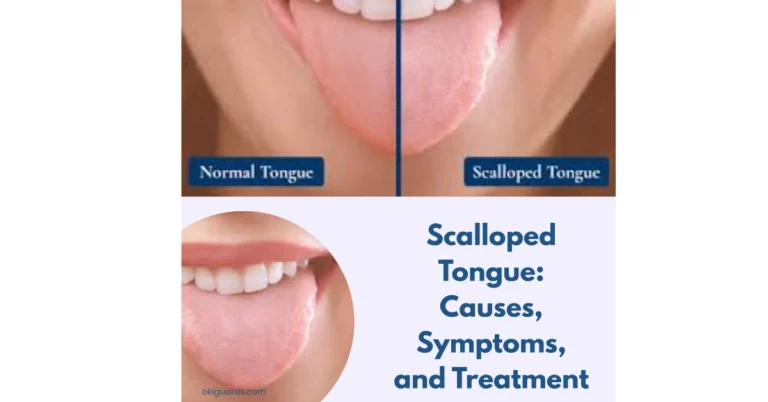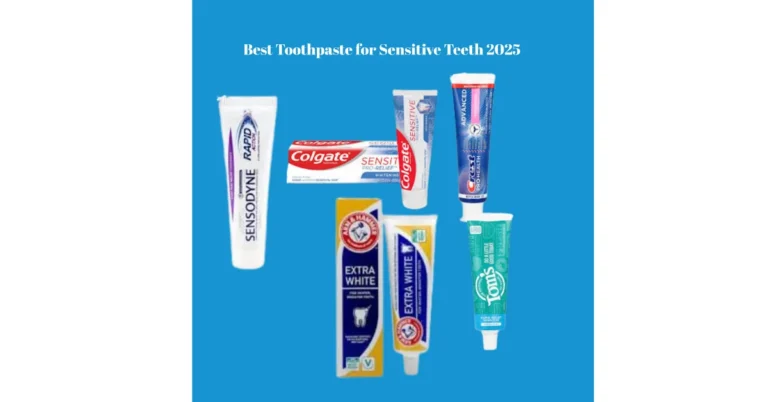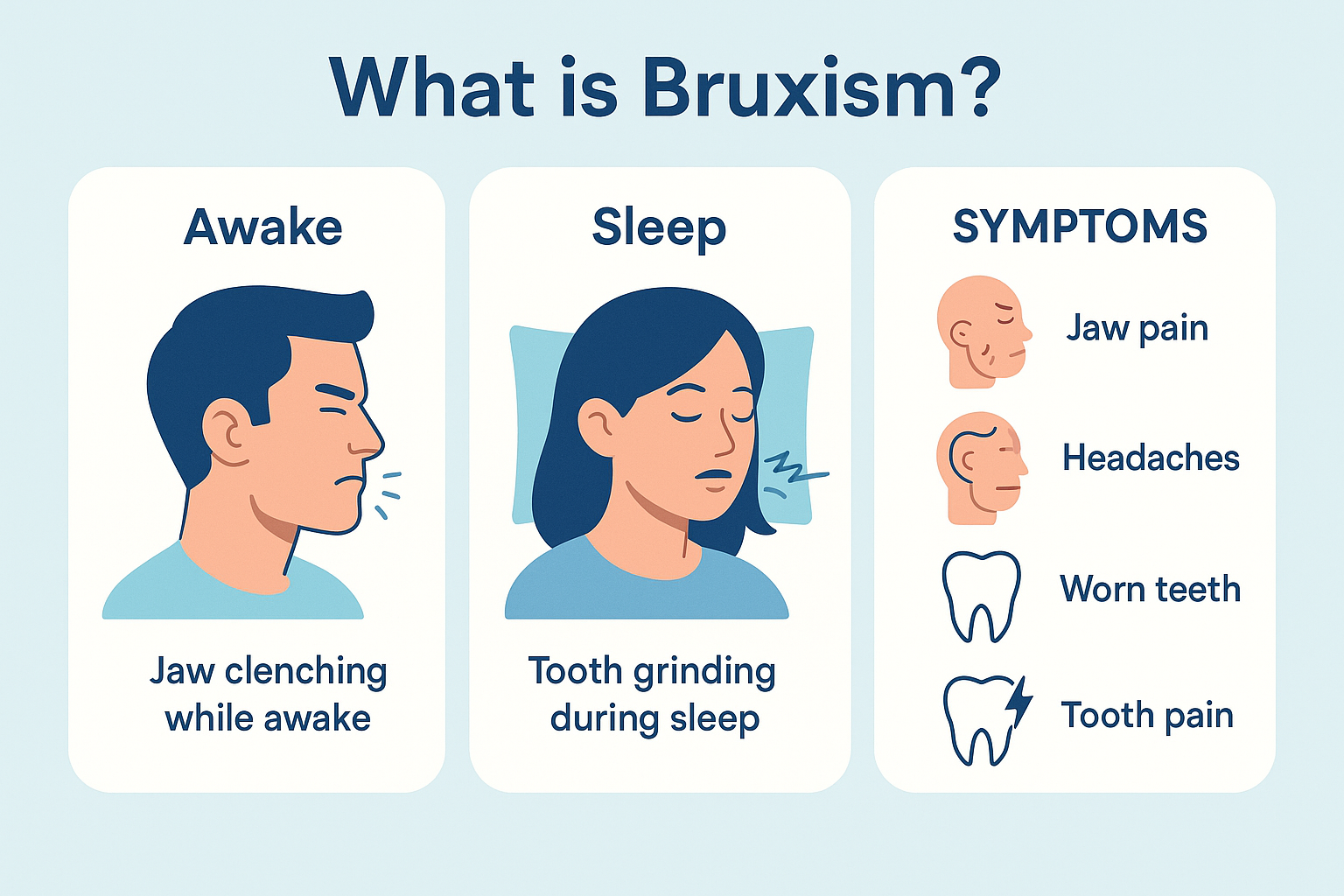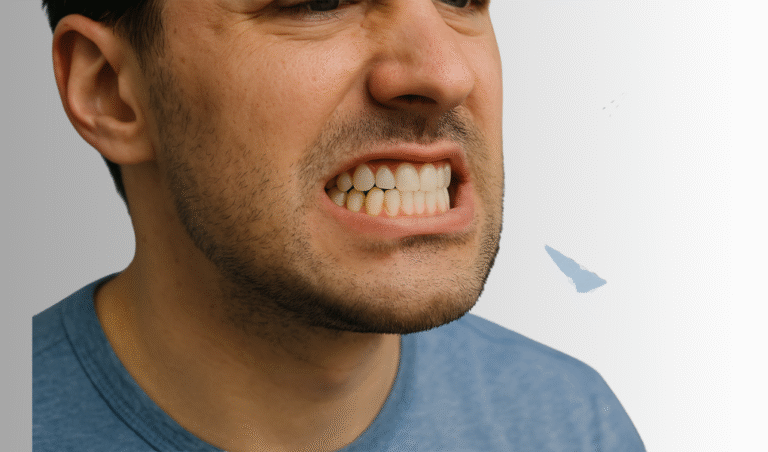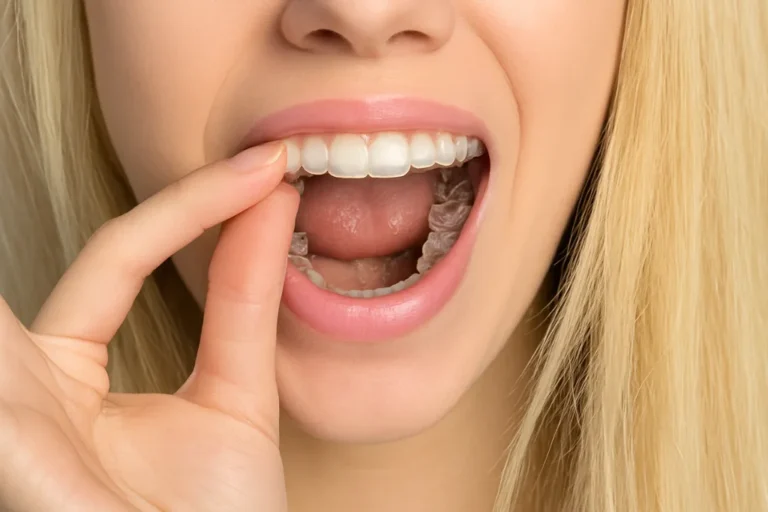Effective Remedies to Stop Teeth Grinding While Sleeping
Teeth grinding during sleep, also known as sleep bruxism, can lead to serious dental issues, headaches, and jaw pain if left untreated. This condition often goes unnoticed until symptoms become severe, disrupting both your oral health and quality of sleep.
The good news is that there are many teeth grinding in sleep remedies available, ranging from simple lifestyle adjustments to advanced dental treatments. By understanding your triggers and seeking the right solution, you can effectively manage this condition.
In this blog, we will explore the most effective teeth grinding in sleep remedies, including natural solutions, behavioral strategies, and professional treatments, to help you protect your teeth and enjoy restful nights.
What Is Sleep Bruxism?
Sleep bruxism is a condition where individuals clench, grind, or gnash their teeth during sleep. It is often linked to stress, anxiety, sleep disorders, and other underlying health factors. While some people may experience mild cases without noticeable symptoms, others can suffer from jaw pain, tooth damage, and headaches. Managing this condition effectively involves exploring teeth grinding in sleep remedies to protect your dental health and ensure restful sleep.
Causes of Teeth Grinding in Sleep
- Stress and Anxiety: Emotional stress, worry, or tension is a common trigger for grinding teeth at night as the body releases built-up tension during sleep.
- Sleep Disorders: Conditions such as sleep apnea and snoring disrupt normal sleep patterns, increasing the likelihood of bruxism.
- Medications: Certain antidepressants, antipsychotics, and stimulant drugs may have side effects that contribute to teeth grinding.
- Lifestyle Habits: The frequent consumption of caffeine, alcohol, or tobacco products can heighten muscle activity in the jaw, leading to grinding during sleep.
- Dental Problems: Misaligned teeth, an abnormal bite, or poor dental structure may cause the jaw to tense up and trigger grinding.
- Genetics: People with a family history of sleep bruxism are more likely to experience this condition themselves.
- Personality Traits: Individuals who are hyperactive, aggressive, or competitive may be more prone to bruxism during sleep.
Symptoms of Teeth Grinding in Sleep
- Jaw Pain and Tension: A common symptom is soreness in the jaw muscles, especially upon waking.
- Headaches: Persistent headaches, especially around the temples, can be a sign of teeth grinding.
- Tooth Wear and Damage: Worn-down enamel or chipped teeth may suggest ongoing grinding.
- Earache: A dull earache can occur from the pressure placed on the jaw muscles.
- Sleep Disruptions: Grinding can cause disrupted sleep, leading to fatigue and restlessness.
- Facial Pain or Tenderness: Sensitivity in the face or neck area can be linked to bruxism.
Effective Remedies for Teeth Grinding During Sleep
Finding the right remedy for grinding teeth while sleeping is crucial for protecting your oral health and improving your sleep quality. There are several approaches to addressing this issue, ranging from lifestyle changes to professional treatments.
Behavioral Strategies
- Stress Management Techniques: Engaging in stress-reduction practices like meditation, deep breathing, and mindfulness can help reduce the tension in your jaw that leads to grinding. Regular relaxation exercises may also prevent muscle tension from building up at night.
- Cognitive Behavioral Therapy (CBT): CBT is a therapeutic approach that helps individuals identify and change negative thought patterns. It can teach relaxation techniques and help people better manage anxiety, a common trigger for grinding teeth.
Dental Interventions
- Custom-Fitted Mouthguards: A dentist can create a custom mouthguard that fits your teeth perfectly. This appliance acts as a cushion, reducing the pressure placed on your teeth during grinding and protecting them from damage.
- Dental Corrections and Adjustments: If your teeth are misaligned, your dentist may recommend dental corrections such as braces or other adjustments to improve your bite. A proper alignment can reduce the likelihood of bruxism occurring in the first place.
Medical Treatments
- Medications: In some cases, doctors may prescribe muscle relaxants or anti-anxiety medications to help manage the tension in your jaw muscles and reduce nighttime grinding.
- Botox Injections: Botox has been shown to be effective in relaxing the jaw muscles. By injecting Botox into the masseter muscles, which are responsible for grinding, the frequency and intensity of bruxism can be reduced.
Lifestyle Modifications
- Limiting Caffeine and Alcohol: Both caffeine and alcohol can increase muscle activity in the jaw, making it more likely for you to grind your teeth. Reducing or eliminating these substances, especially in the evening, can help prevent bruxism.
- Establishing a Relaxing Bedtime Routine: Creating a calming routine before bed, such as reading, taking a warm bath, or practicing gentle stretching, can promote relaxation and improve sleep quality, reducing the chances of teeth grinding during the night.
Preventive Measures
Taking steps to prevent teeth grinding can save you from discomfort and dental damage in the future. Simple lifestyle changes and good habits can significantly reduce the likelihood of bruxism.
- Regular Dental Check-Ups: Regular visits to the dentist help detect and address teeth grinding early.
- Awareness and Habit Changes: Being mindful of jaw clenching during the day can reduce nighttime grinding.
- Sleep Hygiene: Maintaining a consistent sleep schedule promotes better sleep and reduces bruxism.
- Managing Stress: Practicing stress-reducing activities like exercise and relaxation helps prevent grinding.
FAQs
Conclusion
Teeth grinding during sleep is a common issue that can lead to serious dental and health problems if not addressed. By utilizing effective remedies such as stress management, dental interventions, and lifestyle modifications, you can significantly reduce bruxism. Early prevention and treatment are key to protecting your teeth and improving your quality of sleep.

